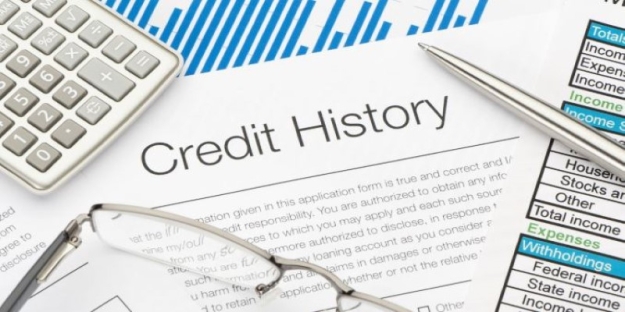Why Closing Old Cards Might Hurt Your Score
Consider closing an old credit card account. It might seem like a smart way to simplify your finances, but it could chip away at your credit score. Many people don't realise how much of an impact this one move can have. Let's break down why older cards matter, what happens when you close them, and how to make better decisions for your credit health.
How Credit Scores Work Behind The Scenes?
Your credit score isn’t random. It’s based on a set of factors that lenders use to predict how you’ll manage debt. The main ones are:
- Payment History – Whether you’ve paid on time
- Credit Utilisation – How much of your available credit you’re using
- Length of Credit History – How long your accounts have been open
- New Credit – How often do you apply for new accounts
- Credit Mix – The variety of credit types you have
Closing a card might seem harmless, but it can hit two of these factors hard: your credit utilisation and your length of history.
Why Length Of Credit History Matters?

Credit scoring models like to see that you can manage accounts over time. A long track record of responsible borrowing builds trust. Here’s where an old credit card plays a role:
- Oldest Account Age – If your oldest account is the one you close, your average account age will drop once it falls off your report.
- Average Account Age – This is the mean age of all your accounts. Losing a long-standing one can bring this average down, making you look less experienced to lenders.
Think of it like a résumé—removing your longest-held job makes your work history look shorter.
The Credit Utilisation Trap
Credit utilisation is the ratio of the credit you use compared to your total limit. Lower is better. Here's the catch:
Imagine you have two cards:
- Card A: $5,000 limit
- Card B: $3,000 limit
You carry $2,000 in balances across both. Your utilisation is $2,000 ÷ $8,000 = 25%.
Now, close Card A. Your limit drops to $3,000, and your utilisation jumps to $2,000 ÷ $3,000 = 66%. Even if your spending hasn't changed, your score can take a hit because the percentage went up.
When Closing A Card Might Be Okay
There are times when closing a card makes sense, even with the score hit. For example:
- High Annual Fees – If the perks don’t outweigh the cost
- Temptation to Overspend – If having the card makes it hard to stick to a budget
- Fraud or Security Concerns – Though usually, getting a new number is enough
If you must close one, choosing a newer account with a low limit is usually less damaging.
How Long Closed Accounts Affect Your Score?
Here's a lesser-known detail: closed accounts in good standing can stay on your credit report for up to 10 years. That means the positive history still counts for a while. Once they drop that off, your credit length shrinks, and your utilisation increases because you've taken on more debt since.
Alternative To Then Closing: Downgrade Or Reduce Usage
If the reason you’re closing is fees, see if your card issuer can switch you to a no-fee version instead. Many banks allow this without affecting your account age. You keep the history but lose the cost.
Another option is to stop using the card for most purchases but keep it open. Please make a small charge every few months, similar to a streaming subscription, and pay it off immediately to keep the account active.
The Emotional Side Of Old Cards
It’s not just about numbers. Some people feel attached to a card they’ve had for years, maybe their first one. It represents the start of their credit journey. Others see closing an account as tidying up their financial life. Both feelings are valid, but knowing the real-world impact helps you decide with your head as well as your heart.
How To Check The Impact Before You Act?

If you’re unsure about closing a card, try these steps:
- Check Your Current Utilisation – Add up your balances and credit limits.
- Run The Numbers – See what happens to your utilisation if you remove that card's limit.
- Look at Your Oldest Account – If it’s the one you’re thinking of closing, understand how your average age will change over time.
- Check for Better Options – Call your issuer about fee waivers or downgrades.
Sometimes the damage might be minimal, especially if you have other long-held accounts and low utilisation.
How To Recover If You’ve Already Closed A Card?
If you’ve already made the move and noticed your score dip, don’t panic. You can work on boosting it again:
- Pay Down Balances – Lower utilisation can give a quick score lift.
- Keep Other Accounts In Good Standing – On-time payments matter most.
- Limit New Applications – Too many hard inquiries can slow your recovery.
- Add Another Source Of Available Credit – This can offset the lost limit, though it may slightly shorten your average age at first.
Real-Life Example
Take Sarah, for instance. She had three cards:
- $10,000 limit, 15 years old
- $5,000 limit, 8 years old
- $3,000 limit, 2 years old
She barely used the oldest card and decided to close it. Her total available credit dropped from $18,000 to $8,000. She had $3,000 in balances, so her utilisation went from 16% to 37%. Her score fell by nearly 40 points. It took her almost a year of paying down debt to recover.
On the other hand, her friend Mark closed a new card with a $1,000 limit. His utilisation barely changed, and his score stayed steady. The difference was in the age of the account and the size of the limit.
The Bottom Line On Old Credit Cards
Old cards carry weight in your credit profile because they build your history and expand your credit limit. Closing them can shorten your track record and make you look like you're using a bigger share of your available credit, even if your habits haven't changed.
Making the Right Choice for Your Credit Health
If you’re deciding whether to close an old card, weigh the pros and cons carefully. Ask yourself:
- Does it cost more to keep it than it benefits my score?
- Can I downgrade it instead of closing?
- Will my utilisation or account age take a noticeable hit?
By thinking through these points, you can make a decision that supports your long-term credit health without unpleasant surprises.